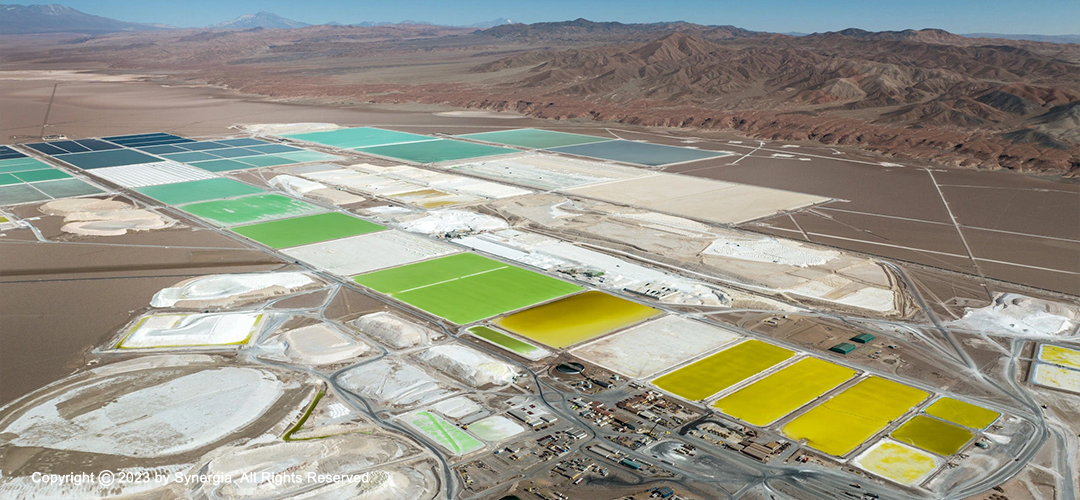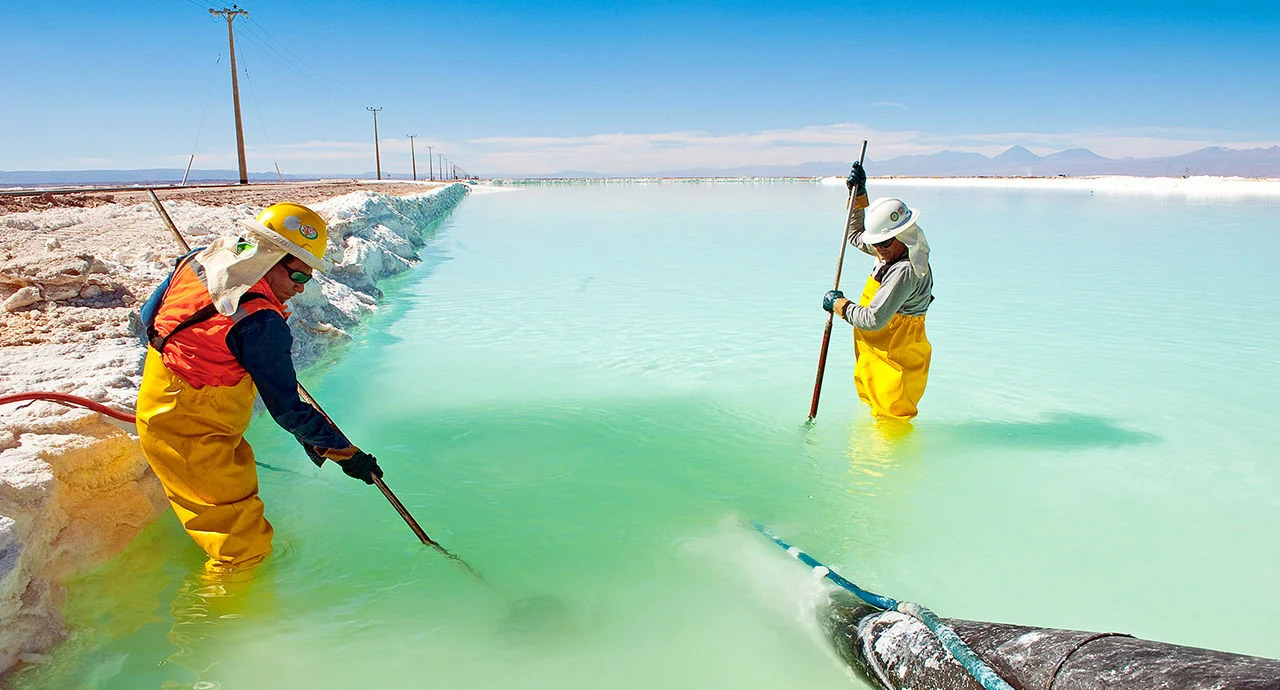Chile's Lithium Strategy: A Game Changer?
July 1, 2023 | Expert Insights

Chile is one of the world's leading producers of lithium, a key component in electric vehicle batteries and other high-tech products. In April 2023, the Chilean government published a new national lithium policy that aims to increase state control over the country's lithium industry and increase government participation in the lucrative sector.
Background
Chile has been a major lithium producer since the 1960s, with its lithium reserves estimated to account for about 21 per cent of global reserves. The decision in many countries to entirely switch to electric vehicles by 2030 has sent the lithium-ion battery industry into a tizzy, with demands spiralling and likely to soar even higher. This has been a bonanza for Chile, whose vast salt flats that produce its lithium have turned into an El Dorado. However, other countries, too, are in the race, like Australia and Argentina.
The Chilean lithium industry is currently dominated by two private companies: Chile-based SQM and U.S.-owned Albemarle. Both companies have long-term contracts with the Chilean government to extract lithium from the country's salt flats.
The "National Strategy for Lithium" calls for creating a new state-owned lithium company with a majority stake in all future lithium projects. The policy also sets ambitious production targets for lithium, with the goal of increasing Chile's share of the global lithium market from 33 per cent to 50 per cent by 2030. The government also plans to renegotiate existing leases with private lithium miners and require some new projects to be joint partnerships with a state-owned company.
The strategy is part of a broader effort by Chile to boost its domestic lithium industry and capture more of the value of the mineral. Currently, most of the world's lithium processing, which turns the dusty white mineral into a substance that can be used in batteries, occurs in China. Chile plans to establish a research institute to study lithium and sign a deal with the European Union on value-added lithium projects.
The thrust is on boosting Chile's struggling economy and creating more jobs for its population, the fifth largest in South America.

Analysis
The National Strategy for Lithium could significantly impact Chile's economy and the global lithium market. The policy could lead to increased investment in the Chilean lithium industry and the creation of new jobs. It could also help to ensure that Chile captures a larger share of the profits from the lithium industry.
However, the policy could also have some negative implications. For example, it could lead to higher prices for lithium, which could make electric vehicles more expensive. It could also discourage investment from foreign companies, which could slow down the development of the Chilean lithium industry.
Chile is not the only country with ambitious plans for lithium. Australia, the world's largest lithium producer (having outstripped Chile in 2017), also announced a new critical minerals strategy that aims to attract investment in the lithium sector and create jobs in the mining and processing industries.
Argentina, home to the world's second-largest lithium reserves, also plans to take a more active role in the lithium market. The Argentine government is reportedly planning to send a bill to Congress with a national lithium strategy that the Chilean model partially inspires.
The strategies announced by Chile, Australia, and Argentina aim to ensure that these countries benefit from the growing demand for lithium. The strategies vary in details, but they all share the goal of increasing domestic production and processing of lithium.
As expected, the policy has been met with mixed reactions from industry stakeholders. Some have praised the government for taking a more proactive role in the lithium industry, while others have criticized the policy as too interventionist and likely to discourage investment. Others have argued that the policy is not ambitious enough and that Chile should be aiming to capture a larger share of the global lithium market.
Some environmental groups have also criticized the policy. They argue that the policy does not do enough to protect the country's lithium resources and that it could lead to environmental damage.
India is a major consumer of lithium, with a demand growing exponentially as the country moves towards a clean energy future. It was already concerned with the domination of China in the global lithium supply, especially in Latin America. With the Chilean government expanding its footprint over the industry, rising costs could impact Indian plans for clean energy. Furthermore, this has geopolitical connotations. The much-hyped lithium discovery in J&K is still years away from full exploitation.
Assessment
- While Chile is fully entitled to make the best use of its national resources for its interests, the global impact of the move on the rising demand for lithium cannot be wished away. For nations like India, whose demand far outstrips its domestic production, this should be a matter of concern and a strong incentive to expeditiously enhance domestic sources.
- The lithium strategies of Chile, Australia, and Argentina are all aimed at ensuring that these countries benefit from the growing demand for lithium. The strategies vary in details, but they all share the goal of increasing domestic production and processing of lithium. It remains to be seen how successful these strategies will be.
- State-owned enterprises are not known for their efficiency or competitiveness with the private sector. While in the short run, they may boost employment figures for the political parties to wave around for electoral gains, a fall in production accompanied by rising costs could disrupt this lucrative market. Hence, the private sector must not be kept out and should be encouraged to participate in joint ventures.








Comments